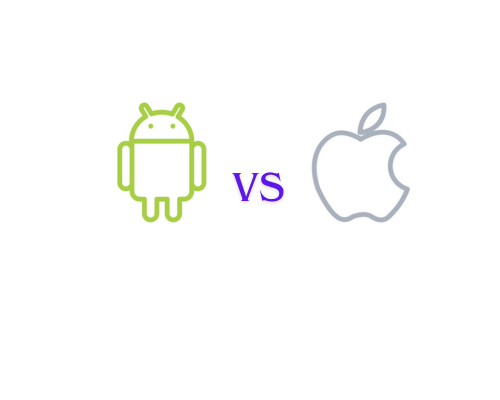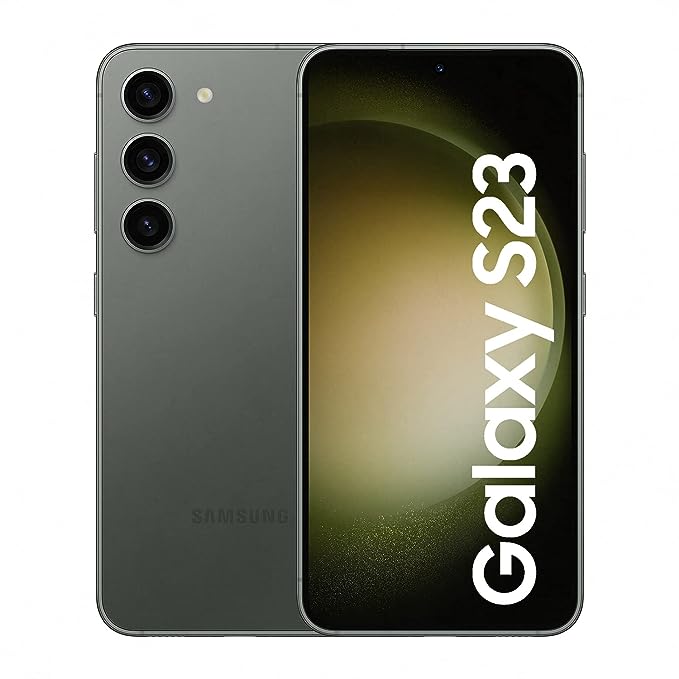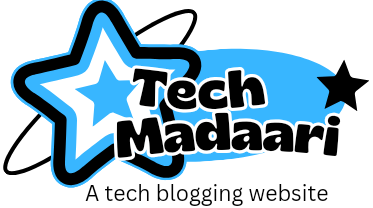Introduction: The Great Debate
Imagine! you’re in the market to buy a new mobile phone, but you’re torn between the allure of Android devices and the sleek simplicity of iPhones. Sound familiar? You’re not alone! The debate over which platform reigns supreme has been raging for years. But fear not – in this guide, we’ll delve deep into the pros and cons of Android and iPhones to help you make an informed decision that’s right for you. Below is the comparison made on the basis of relevant parameters that will guide you to know the answer to the question – Are Android Phones Better Than iPhones? A comprehensive guide.
Section 1: Customization vs. Simplicity
The Android Advantage: When it comes to choosing between Android and iPhone, one of the most significant differences lies in the approach to customization and simplicity. Android devices are renowned for their unparalleled customization options, allowing users to personalize every aspect of their phone, according to their preferences.
With Android, the sky’s the limit when it comes to making your device truly your own as, you’re not confined to a static grid of icons on your home screen. Instead, you can choose from a plethora of custom launchers, icon shapes, home screen layout, widgets, and themes to create a unique and personalized user experience.
However, the vast array of customization options on Android can be overwhelming for some users, leading to decision fatigue or confusion. Additionally, the sheer number of choices available can make it challenging to find the perfect setup that strikes the right balance between aesthetics and functionality and to find the answer to the question -Are Android Phones Better Than iPhones?
The iPhone Appeal: On the other hand, iPhones are beloved for their sleek and intuitive user interface, offering a seamless and straightforward user experience right out of the box. Apple’s ecosystem is designed with simplicity in mind, making it easy for even the least tech-savvy users to navigate their device with ease.
Apple’s design philosophy prioritizes simplicity and elegance, with a focus on clean lines, intuitive gestures, and minimalistic design elements.
With an iPhone, you don’t need to worry about tinkering with settings or customizing your home screen to achieve a polished and cohesive look. Everything just works seamlessly together, from the carefully crafted app icons to the fluid animations and transitions. The simplicity of iOS makes it easy for even the least tech-savvy users to navigate their device with confidence and ease.
But, despite its simplicity, iOS lacks the extensive customization options available on Android. If you crave the ability to personalize every aspect of your device or prefer a more diverse range of options for customization, you may find iOS limiting in this regard. This sub-section of the title “Are Android Phones Better Than iPhones? A comprehensive guide, might have given you some idea, I hope.
Section 2: App Ecosystem and Compatibility
Android’s Diversity: In the realm of smartphones, the app ecosystem plays a crucial role in shaping the user experience. With the Google Play Store boasting millions of apps and games, Android users have access to a vast and diverse ecosystem of applications catering to every need and interest imaginable. Whether you’re a productivity powerhouse, a gaming guru, or a social media maven, there’s an app for that on Android.
One of the key strengths of Android’s app ecosystem is its openness and inclusivity. Developers have the freedom to publish apps on the Google Play Store with minimal restrictions, resulting in a wide variety of choices for users. Additionally, Android’s open-source nature allows for greater innovation and experimentation, leading to a more dynamic and vibrant app ecosystem.
iPhone’s Quality App Experience: While the Apple App Store may have a smaller selection of apps compared to the Google Play Store, it is known for its stringent quality control measures and curated selection of high-quality apps. Apple prides itself on maintaining a high standard of app quality, ensuring that users have access to well-optimized, secure, and reliable apps that deliver a seamless user experience.
One of the advantages of the Apple App Store is its focus on quality over quantity. Apple’s strict app review process helps weed out low-quality or potentially harmful apps, resulting in a safer and more enjoyable app experience for users. Additionally, iOS-exclusive apps and games often debut on the App Store first, giving iPhone users early access to cutting-edge software and features.
Compatibility and User Satisfaction: When it comes to compatibility, both Android and iPhone offer robust ecosystems that cater to a wide range of devices and user preferences. However, there are some differences in how apps are developed and optimized for each platform, which can impact compatibility and user satisfaction.
On Android, the sheer diversity of devices and hardware configurations can sometimes lead to compatibility issues or performance discrepancies across different devices. Developers need to account for variations in screen sizes, resolutions, and software versions when optimizing their apps for Android, which can result in a less consistent user experience compared to iOS.
On the other hand, iPhones are known for their standardized hardware and software ecosystem, making it easier for developers to optimize their apps for iOS devices. This uniformity contributes to a more consistent and reliable user experience on iPhone, with apps typically performing well across all devices.
The Apple Advantage: iPhones may have a smaller app selection compared to Android, but what they lack in quantity, they make up for in quality. The Apple App Store is renowned for its stringent quality control measures, ensuring that users have access to a curated selection of high-quality apps that are optimized for performance and security.
Further, this sub-section of the title “Are Android Phones Better Than iPhones? A comprehensive guide, might have given you some idea, I hope.
Section 3: Hardware Diversity vs. Ecosystem Integration

Android’s Hardware Freedom: One of the biggest draws of Android devices is the sheer diversity of hardware options available. From budget-friendly options to premium flagship models, Android offers something for every budget and preference, allowing users to choose a device that perfectly suits their needs.
Android devices are celebrated for their hardware diversity, offering a wide range of options from various manufacturers with different specifications, designs, and price points. Whether you’re looking for a budget-friendly device with basic features or a premium flagship phone with cutting-edge technology, you’ll find an Android device to suit your needs and preferences.
From devices with large high-resolution displays to those with advanced camera systems and powerful processors, Android offers something for everyone. Additionally, the competitive nature of the Android market drives innovation and pushes manufacturers to continually improve and iterate on their devices.
Ecosystem Integration on iPhone: On the other hand, iPhones excel in ecosystem integration, offering a seamless and cohesive user experience across all Apple devices. One of the key advantages of iPhone’s ecosystem integration is the convenience and simplicity it offers to users. Whether you’re starting a task on your iPhone and finishing it on your iPad or receiving a call on your Apple Watch synced with your iPhone, the seamless integration between Apple devices enhances productivity and convenience for users.
Impact on User Satisfaction and Device Functionality: The balance between hardware diversity and ecosystem integration has a significant impact on user satisfaction and device functionality. While Android’s hardware diversity offers greater choice and flexibility for consumers, iPhone’s ecosystem integration provides a seamless and cohesive user experience across all Apple devices.
For users who value customization and diversity, Android’s hardware diversity may be the preferred choice, allowing them to select a device that best suits their needs and preferences. On the other hand, users who prioritize ecosystem integration and seamless connectivity may find iPhone’s cohesive ecosystem more appealing, as it offers a streamlined and hassle-free user experience. With features like AirDrop, iCloud, and Handoff, Apple devices work together seamlessly, allowing users to move seamlessly between their iPhone, iPad, Mac, and other Apple devices.
The closed ecosystem of iPhones may limit flexibility and choice for users who prefer a more open and customizable experience.
Okey ! like previous, this sub-section of the title “Are Android Phones Better Than iPhones? -A comprehensive guide, might have given you some idea, I hope.
Section 4: Customization and Control vs. Security and Privacy
Android’s Flexibility: Android devices offer unparalleled customization options, allowing users to tweak and modify their device to their heart’s content. However, this flexibility comes at a cost – Android’s open-source nature makes it more susceptible to malware and security vulnerabilities if proper precautions aren’t taken.
The openness of Android’s ecosystem can sometimes lead to security vulnerabilities and privacy concerns, particularly when installing third-party apps or customizations.
Security and Privacy on iPhone: While Android prioritizes customization and control, iPhones are celebrated for their robust security and privacy features. With built-in safeguards such as Face ID, Touch ID, and end-to-end encryption, iPhones offer users peace of mind knowing that their personal data is protected from unauthorized access and potential threats. Apple takes a proactive approach to security, regularly releasing software updates and patches to address vulnerabilities and ensure that iPhones remain secure and up-to-date.
Impact on User Experience and Peace of Mind: The balance between customization and control on Android and security and privacy on iPhone has a significant impact on user experience and peace of mind. While Android offers greater flexibility and customization options, iPhone provides a more secure and privacy-focused environment.
For users who prioritize customization and control, Android’s extensive customization options may be the preferred choice, allowing them to personalize their device to their heart’s content. However, users must also be mindful of potential security risks associated with third-party apps and customizations.
On the other hand, users who prioritize security and privacy may find iPhone’s built-in safeguards and stringent app review process more appealing. While iPhone’s closed ecosystem may limit customization options, it offers users greater peace of mind knowing that their personal data is protected from prying eyes and potential threats.
Hope, now you might be knowing : “Are Android Phones Better Than iPhones? A comprehensive guide.

You may also like to read this post : Is It The Best Time To Buy a Mobile Phone?
Conclusion: Choosing the Right Device for You: "Are Android Phones Better Than iPhones? A comprehensive guide.
Summary of Key Points: At the end of the day, the question of whether Android is better than iPhones (or vice versa) ultimately comes down to personal preference. Each platform has its own unique strengths and weaknesses, and the right choice for you depends on your individual needs, preferences, and priorities.
Final Words of Advice: Whether you’re drawn to Android’s customization options or iPhones’ simplicity and security, take the time to carefully consider your priorities and do your research before making a decision. By weighing the pros and cons of each platform and considering how they align with your lifestyle and usage habits, you can find the perfect device that meets your needs and brings you joy for years to come. Happy shopping!

